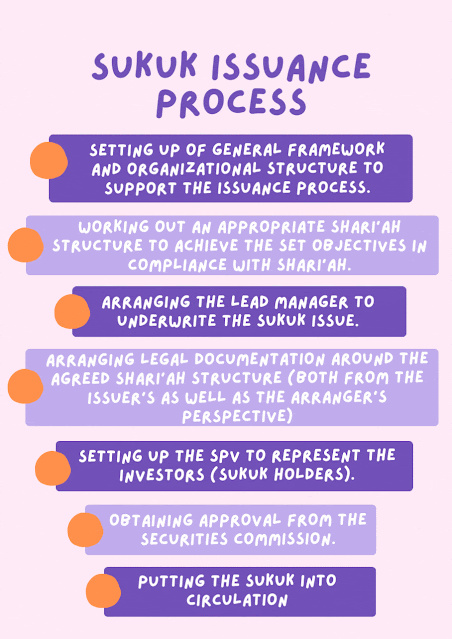Summary & Conclusion
Then, the comparison of Islamic and conventional capital markets. The growing popularity of Islamic finance has led to the development of the Islamic capital market which seeks to provide investors with financial market exposure while adhering to the Shariah investment principle. Although the conventional capital market has long been operating globally compared to the Islamic capital market, the Islamic capital market has developed and is heading to be comparable to the conventional capital market. There is also data that shows the comparison between the two; Islamic and conventional capital markets in Malaysia, from the securities commission Malaysia's annual report 2020. Besides, there are three main differences between the Islamic capital market and conventional market that have been discussed, which are in terms of shariah framework, prohibited transactions, and the Sukuk-bond market.
Apart from that, there are three instruments of the Islamic capital market, which consist of Islamic equity, Sukuk, and Islamic compliant derivatives. Islamic equity, like conventional equity, is a partnership in which both loss and return are shared. As a result, if profits are made and the issuing organization decides to distribute a portion of them, the equity holder can benefit from dividends. The equity market expanded to include various types of Islamic funds, such as Islamic unit trusts, Islamic real estate investment trusts (Islamic REITs), commodity funds, Islamic exchange-traded funds (Islamic ETFs), Islamic private equity, and venture capital funds. Next is, Sukuk. Sukuk is a type of Islamic financial instrument or security that represents ownership of an asset. Sukuk are asset-backed bonds (ABS). It is an Islamic investment certificate with claims not only on the cash flows or revenue generated by the asset but also on the asset itself. Instead of receiving a fixed ratio of capital invested, the holder of a Sukuk shares the business's profits and risks (interest). There are various Shari'ah-compliant products that are structured in accordance with Islamic financial contracts. Sukuk al-Ijarah, Sukuk al-Salam, Sukuk al-Murabahah, Sukuk al-Istisna’, Sukuk al-Musharakah, and Sukuk al-Mudarabah. Lastly, Islamic-compliant derivatives. Islamic derivatives are any agreement made in accordance with Shari’ah, including an option, a swap, futures, or forward contract, whose market price, value, delivery, or payment obligations are derived from, referred to, or based on, but not limited to, Islamic securities, commodities, assets, rates, or indices.
In conclusion, the Islamic capital market has grown dramatically in recent years as an integral component of the Islamic financial system. This is hardly surprising given the overall development reported by the Islamic financial system. The commodities exchanged in the Islamic capital market were essentially Islamic equities and Sukuk. Shariah framework is a technique for controlling firms to guarantee that their entire operating activities are in accordance with Shariah. Shariah law is the essential value of the Islamic capital market, and it must be preserved at all costs. This research looks at how Malaysia's Islamic capital market evolved and how successful certain countries have been in implementing Shariah governance norms. It is a comprehensive framework of best practices that address all aspects of Islamic accountability and responsibility, including independence and objectivity, competence, confidentiality and commitment, consistency, Shariah audit and review, transparency and disclosure, corporate social responsibility, and ethics.
For references, click here.


.gif)

Comments
Post a Comment